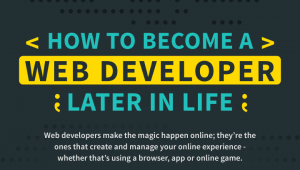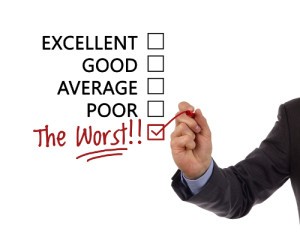— July 11, 2017

PublicDomainPictures / Pixabay
A few years ago, I believed in the power of mentors—of scouring the land for the brightest, most passionate, exceedingly selfless mentors who could impart pearls of career wisdom. As the best-selling business books and keynoters all contend: find mentors, particularly those in your industry, who you believe have the potential to shape, guide and nourish your career. And, above all else, make sure you are mentor worthy.
I spent a great deal of time early in my career searching for mentors, oftentimes “chasing” after those I believed sat in the positions I so desired. I hoped, with the right level of tact and strategy, that I could convince them to invest in me. Sometimes I got lucky and found powerhouses with whom I forged strong, authentic relationships. Other times, the quest left me feeling dejected or, worse, aligning with people who may have had the career I wanted but did not possess any of the core values, conviction or character for which I could respect.
So, along the way, I stopped searching for mentors and even believing in the concept. You see, to me the mentor-mentee concept immediately puts the mentee in a subservient role, as if they have nothing to give back. It also all too often casts an old-young dichotomy, and fails to account for a changing business landscape in which we can all learn from one another. (I explore the inherent mentor-mentee flaws here.)
With these thoughts in mind, today I seek out strong partners; individuals who can become my greatest advocates and teachers, yet who also have something to gain from having a relationship with me. And it’s worked! In recent years, I have found some of my most meaningful relationships; bonds that have allowed me to reach new levels of personal and professional growth.
Whether you are just starting out in your career or have decades of expertise, here are three tips for finding strong partners:
1. Form Authentic Relationships:
You will always have a great deal to learn from someone in your organization who holds a role you so desire. But just because someone has the right title does not mean they will be the right partner for you. A few years ago, I worked for a strong executive woman who was a trailblazer in every sense of the word. She commanded the room, “held no prisoners” and was well respected amongst the executive team. But to mid-level managers or entry-level employees she was demeaning, self-absorbed and entirely too focused on hierarchy.
One of my core values is authenticity, meaning I not only pride myself on being open, vulnerable and reliable, but I expect the same of others. I could have tried to form a partnership with this executive, but doing so would conflict with one of my core values as our relationship would never be founded on authenticity. To “get along,” I would have had to compromise—being less sensitive, more decisive. There wasn’t any lesson she could teach me that made up for our character differences.
As you seek out strong partnerships, prioritize authentic relationships in which each party can be their truest self without apology. These are the bonds that allow you to grow the fastest, as the person truly knows you and can therefore help you get from Point A to Point B in a way that makes sense for you and not them.
2. Pride Should Be Evident:
The best partners are your biggest cheerleaders. They are the ones who will gladly write you a glowing recommendation, role play with you before a big interview and have a big ole’ grin on their face when you tell them you got the promotion. It’s not fake; they are genuinely invested in your future.
I am so blessed to have so many extraordinary partners in my life. They are the first people I call for that extra vote of confidence, to celebrate a win or to brainstorm an “out there” idea because of their fierce belief in me. When you find these partners hang on as they can be hard to come by in a competitive, dog-eat-dog world. These partners recognize that your talents and wins are not threats to their success; rather, they can serve to inspire them to live up to new potential.
Should you be so lucky as to find these individuals, make sure you return the favor. Be just as proud of them as they are of you, and spend time getting to know what makes them feel accomplished. It’s amazing what we can accomplish when we have strong support systems.
3. Understand Your Own Gifts
The strongest of partnerships are reciprocal, with both parties understanding they have something to contribute. One of the biggest problems with the mentor-mentee paradigm is it can be rooted in a moment in time. For instance, a Marketing Manager may hope to become a Director of Marketing so she seeks forming a connection with a Director of Marketing at another company for advice and guidance. Suddenly, the Marketing Manager becomes the Director of Marketing. Then what? How does the relationship continue from there?
If you instead seek out partners, those who are not connected to a moment in time, you stand to develop a deeper relationship that you can depend on continually as you move forward. To find a strong partner, don’t find someone you “need” at this moment in time. Rather, find people who have the personality and character components needed to make a good, long-term partner.
As you do, recognize what you can aptly bring to the table. Are you a great listener? Someone who can brainstorm with the rest of them? Whatever your gifts are, celebrate them and bring them front and center into the relationship. This is how mutual partnerships are forged.
What about you… are you on board with forming partnerships instead of mentorships? I’d love to hear from you in the comments below!
Business & Finance Articles on Business 2 Community
(33)
Report Post




